
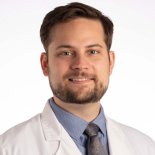
This episode delves into the evolving techniques and options available for breast reconstruction after cancer surgery. Join plastic surgeon Dr. David A. Sterling as he shares insights on the different types of procedures and what candidates should expect post-operation. This is vital information for patients seeking to regain their sense of wholeness.
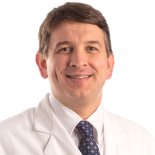
Join Dr. Ryan Dare as he dives into the critical role of antibiotic stewardship in healthcare. Learn how proper management of antibiotic prescriptions can help combat resistance, ensure effective treatments, and protect future generations from infections. Discover why this topic is vital for both healthcare providers and patients.
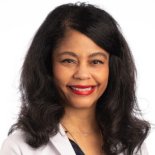
Discover the advantages of state-of-the-art 3D mammography at UAMS. Dr. Bryant Smith highlights how this innovative technology captures clearer images, increasing the accuracy of screenings, especially for women with dense breast tissue. Get informed before your next appointment!

Join us as we delve into the true meaning of self-care with expert Isis Pettway. Discover how self-care transcends indulgence and serves as a vital practice for our mental well-being, according to the World Health Organization. Learn the essentials of cultivating your health and improving your daily life.
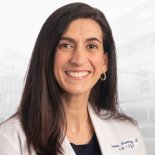
A new statewide program is aiming to improve maternal and infant health in Arkansas, one of the states with the highest maternal and infant mortality rates in the country.
The University of Arkansas for Medical Sciences has launched a three-tiered initiative through its new program, Arkansas Center for Women & Infants’ Health. It offers vital resources to new mothers and babies during the critical postpartum period.
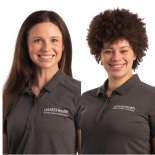
Many individuals neglect their pelvic floor, unaware of how pivotal it is to overall wellness. In this episode, we’ll explore common misconceptions and provide actionable tips to enhance your pelvic health.
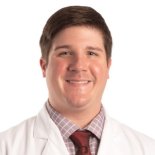
If you're feeling apprehensive about your first mammogram, this episode is tailored for you! Dr. Jennings addresses common fears and provides insight on what you can expect before, during, and after the procedure, ensuring you feel informed and comfortable.
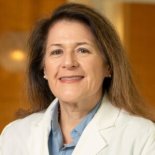
Join Dr. Ashley Norris from UAMS as she dives into the spectrum of heat-related illnesses, ranging from heat rash to the severe heat stroke. Learn about the warning signs, risk factors, and essential prevention tips to keep you and your loved ones safe during the hot summer months.
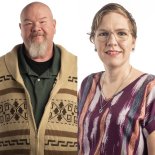
Discover the step-by-step process behind advance care planning in this informative episode. From filling out advanced directive forms to discussing your wishes with loved ones, Carla and Jonathan guide you through the daunting but crucial decisions that can ease the burden on your family when it matters most.

What impact does our wellness have on our mental health?
Isis Pettway, Senior Clinical Therapist at UAMS, answers that question and introduces eight dimensions of wellness.
Isis specializes in treating anxiety, depression, trauma, grief and more. Her clients are able to manage their daily lives with healthy outcomes.
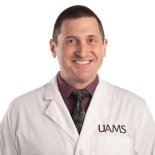
Dr. Justin McLawhorn discusses Melanoma and the importance of sunscreen usage, especially during the summer months.
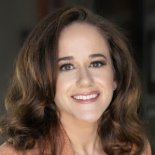
Alyssa Frisby, registered and licensed dietitian at UAMS, gives some tips about eating healthy even when you're always on the move.
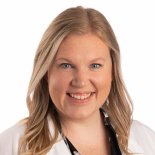
If you've ever wondered how your family history may influence your health outcomes, this episode is for you. Join Amanda Wilde and Alexandrea Wadley as they explore the significance of hereditary cancer genes and the criteria for genetic testing. Learn about the benefits of early detection and personalized screening that could save lives.
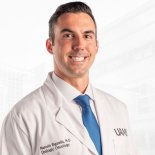
Dr. Marcelo Bigarella with UAMS discusses the basics of prostate cancer. This includes symptoms, risk factors, and the latest advancements in prostate cancer treatment.
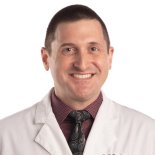
Mohs surgery is a highly precise surgical technique used to treat certain skin cancers. It preserves as much healthy tissue as possible, has minimal scarring, and allows for immediate confirmation of cancer removal.
Dermatologist Dr. Justin McLawhorn with the University of Arkansas for Medical Sciences talks about how this surgery is different from other skin cancer removals.
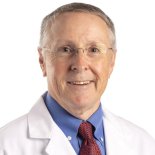
Norovirus is a highly contagious virus that causes inflammation of the stomach and intestines, also known as gastroenteritis. It's often called the "stomach flu" or "stomach bug", but it's not related to the flu. Dr. Robert Hopkins discusses how to prevent the spread, treat the symptoms, and treatment options.
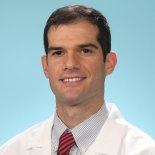
Carbon monoxide poisoning occurs when carbon monoxide builds up in the blood. When too much carbon monoxide is in the air, the body replaces the oxygen in the red blood cells with carbon monoxide. This can lead to serious tissue damage, or even death.
Carbon monoxide is gas that has no odor, taste or color. Burning fuels, including gas, wood, propane or charcoal, make carbon monoxide. Appliances and engines that aren't well vented can cause the gas to build up to dangerous levels. A tightly enclosed space makes the buildup worse.
Dr. Ari Filip, the Medical Director at the Arkansas Poison and Drug Information Center at UAMS is here today to talk about the causes and prevention of carbon monoxide poisoning.
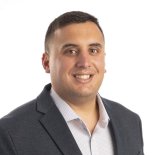
Join us as we explore the pivotal role of clinical trials in advancing cancer care. Matt Kovac, director of the cancer clinical trials office, shares insights on how these trials not only offer hope but also pave the way for tomorrow’s standard treatments. Understand the process, participant safety, and the innovations on the horizon that could make a difference in cancer management.
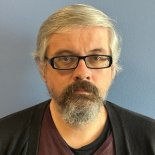
The Odyssey Clinic is a comprehensive coordinated specialty care outpatient clinic for individuals experiencing their first episode of psychosis. Our program works with people 16 years old or older who have had any of these problems for less than two years:
-Seeing or hearing things that others don’t
-A feeling of being touched when no one is around
-A feeling of being watched, followed, or being more suspicious of others
-Believing people know personal information (like your thoughts) they shouldn’t be able to know
-Speaking in a way that others can’t understand
-Persistent or unusual thoughts or beliefs
-Trouble thinking clearly or concentrating
-Changes in mood such as strong and inappropriate emotions or little to no emotions at all
-Declines in self-care or hygiene
-Increased social withdrawal from family and friends
-Sudden declines in school or work performance
The Odyssey Clinic offers several specialized care services including:
-Specific individual counseling focused on building resiliency and recovery
-Support in finding a job, going to school, and building success in those endeavors
-Educating patients and families about these problems and how to help their loved ones and themselves
-Connections to other doctors or drug abuse treatment if needed
-Careful use of medicines to help alleviate symptoms
The Odyssey Clinic accepts self-referrals and referrals from mental health and other medical professionals. The Odyssey Clinic accepts people with insurance. If you do not have insurance, we may be able to help you get it. Financial counseling is available as well
Appointments for the Odyssey Clinic are available Monday, Wednesday, Thursday, and Friday, from 8 a.m. to 5 p.m., and Tuesday from 8 a.m. to 7 p.m. This service is located on the first floor of the Psychiatry Research Institute.